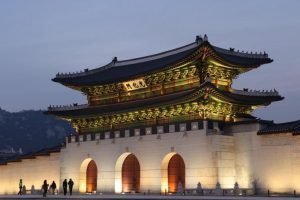How in the jubilee year can give hope in the world of politics. “To overcome resignation and despair, refusing to accept that corruption and self-advancement are inevitable in politics, and demanding honesty and accountability from people in public life.”
In many parts of the world, especially in some of the longest-established democracies, people seem to have given up on established patterns of political life; they feel that the traditional institutions and old ways of conducting politics no longer deliver what they want. Often, they hanker after some supposed ‘golden era’, when things were better, politicians were more honest, and policies were more effective.
As has been observed many times, such nostalgia plays into the hands of populist leaders who cast themselves as political outsiders on a mission to rid their countries of stultified and self-serving ruling elites, and instead promise to bring back the good days. But populism never delivers what it promises – since it proposes superficial solutions to complex problems – and thus leaves voters even more disillusioned.
In some places we see politics and political systems perverted and manipulated to serve narrow interests; those in power refuse to let go of it. Both these political phenomena can be seen as ‘structures of sin’ – the false hope offered by populists, and the resulting frustration of people’s shattered dreams for a better future caused by oppressive and unaccountable regimes.
Against this background, it is interesting to see how the late Pope Francis describes the original Jubilee Year as observed in the time of Moses. Writing in the Italian newspaper Il Messaggero, Pope Francis said it was “a moment of grace, offering freedom to those imprisoned by sin, resignation, and despair.” And even now, he continues, so many centuries later, “in the face of life’s uncertainties, people long to overcome mistrust, scepticism, and despair.”
There is no doubt that, all over the world, people are imprisoned by the political sins of populism and dictatorship; hence, they are often inclined to give in to resignation and despair. Meanwhile, as the Pope said, there is a still a longing to overcome these evils and to prevent mistrust and scepticism to triumph.
How can the 2025 Jubilee Year inspire us in this regard? Two thoughts come to mind. Firstly, to be ‘Pilgrims of Hope’ in the political world implies making hope materialise. Hope is not handed to us on a silver platter; as Pope Francis put it in the Bull announcing the Jubilee, we must “encourage and sustain” hope as part of our Christian journey. This means finding ways to overcome resignation and despair, refusing to accept that corruption and self-advancement are inevitable in politics, and demanding honesty and accountability from people in public life.
Secondly, Christians, as ‘people of hope’, must avoid succumbing to cynicism and negativity. This does not imply being naïve or starry-eyed about politics – there are many problematic people and policies out there, causing great harm and unhappiness, making it difficult to avoid disillusionment. But politicians and political parties are not ‘all the same’. Some individual politicians are more honest and more diligent than others; some policies are more likely to bring about prosperity and safeguard dignity than others; some political strategies are more constructive and well-considered than others.
To fold our arms and dismiss the world of politics as beyond salvation is to give up hope. Let us use our intelligence, our critical thinking, and the social values our faith gives us, to find the good in our politics and politicians, and then do what we can to support them. In that way, we will become ‘pilgrims of hope’ in our societies during this Jubilee Year and beyond. (Mike Pothier, Programme Manager, South Africa Bishops Conference, Parliamentary Liason Office) – (Photo: Pixabay)









